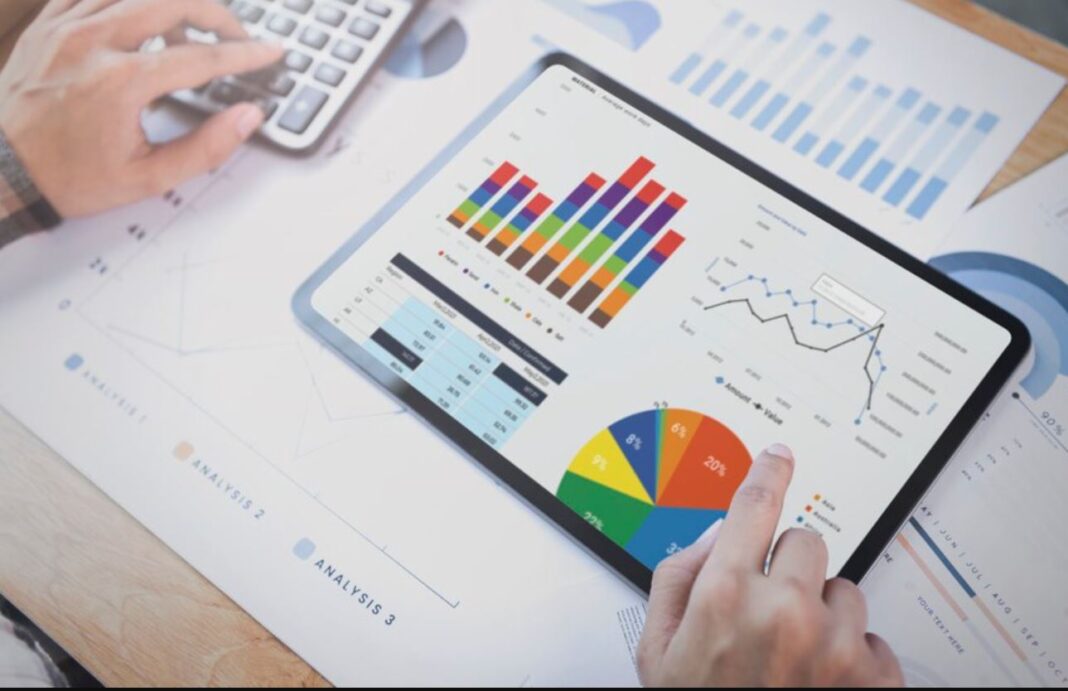In today’s data-driven world, the ability to analyze and derive insights from data is a valuable skill that can open up a world of opportunities. But for beginners, the world of data analytics can seem complex and daunting.
Fear not! This blog is designed to take you by the hand and introduce you to the exciting world of data analytics, making it not only understandable but also enjoyable. Plus, we’ll throw in some handy “hacks” to help you along the way.
What is Data Analytics?
Data analytics is all about turning raw data into actionable insights. It involves collecting, cleaning, and interpreting data to make informed decisions and predictions. Think of it as a treasure hunt, with data as your map to hidden gems of knowledge.
Types of Data Analytics
- Descriptive Analytics
This involves summarizing past data, painting a picture of what has happened. It’s like looking in the rearview mirror.
- Predictive Analytics
Predicting the future, based on historical data. This is where you get to play the role of a data magician, foreseeing what’s to come.
- Prescriptive Analytics
Once you know the past and the future, you can decide what should be done. Think of this as the wise advisor, recommending actions for desired outcomes.
The Data Analytics Process
Data Collection
Start your journey by collecting data from various sources. It could be spreadsheets, databases, or even data from the internet. The key is to ensure that your data is of good quality, so you don’t get lost in a maze of errors and inaccuracies.
Data Exploration
Think of this as your initial exploration of the treasure map. Visualize your data using charts and graphs to identify patterns, outliers, and trends. This can be an exciting phase, akin to discovering a hidden path in a dense forest.
Data Cleaning
The world of data is not always pristine. You might encounter missing or irrelevant data. Cleaning it up and standardizing formats is like cleaning up your compass, ensuring it points you in the right direction.
Data Analysis Tools
Now that you have your map and compass, you’ll need the right tools to navigate the data terrain.
- Excel
It’s like a trusty Swiss army knife for data analysis. Learn to use pivot tables and charts, and you’ll be well on your way.
- Python and R
These programming languages are like magic wands for data wizards. They offer powerful libraries for data manipulation and visualization.
- Data Visualization Tools
Tools like Tableau and Power BI will help you create captivating visuals, making your journey through data more engaging.
<<Also Read: How Long Does It Take To Obtain A Master’s In Data Analytics?>>
Basic Statistical Concepts
Statistics may sound intimidating, but they’re your best companions on this adventure. Some essential concepts to grasp:
- Mean, Median, and Mode:
These are like the basic tools in your kit, helping you understand the central tendencies of your data.
- Variance and Standard Deviation:
These are your compass and map, guiding you through the rough terrain of data dispersion.
- Correlation:
Think of this as a pair of binoculars. It helps you identify relationships between variables.
Data Analytics Hacks for Beginners
Now, let’s talk about some “hacks” that will make your journey smoother and more enjoyable:
- Practice Regularly:
Data analytics is a skill, and like any skill, practice is key. Regular practice will help you refine your abilities.
- Online Courses and Tutorials:
There’s a wealth of online resources available, such as Coursera, edX, and Khan Academy. These platforms offer comprehensive courses that cater to all skill levels.
- Join Online Communities:
Platforms like Stack Overflow and Reddit have active communities where you can seek help when you’re stuck or discuss interesting data-related topics.
- Real-World Projects:
Applying your skills to real-life problems can be incredibly rewarding. Consider volunteering for data-related projects or starting your own.
Data Interpretation
As you progress in your journey, remember that context matters. Always consider the context of your analysis to draw relevant conclusions. Don’t just find the treasure; understand its value and how it fits into the bigger picture.
Storytelling with Data
Once you’ve collected your data, cleaned it, and analyzed it, it’s time to share your discoveries. Crafting a compelling narrative to present your findings can make your insights more impactful.
Data Analytics for Different Fields
Data analytics is a versatile skill. It’s not just about numbers; it’s about finding insights that matter in various domains:
- Business Analytics – Optimize processes and make informed business decisions.
- Healthcare Analytics – Improve patient outcomes and enhance hospital efficiency.
- Marketing Analytics – Enhance marketing campaigns and target customers more effectively.
<<Also Read: Know More About Data Science And Big Data Analytics>>
Advanced-Data Analytics
As you become more proficient, consider exploring advanced areas such as:
- Machine Learning – Dive into the world of machine learning to predict future trends.
- Big Data Analytics – Learn how to analyze vast datasets using tools like Hadoop and Spark.
- Data Ethics – Understand the ethical considerations in data collection and analysis to become a responsible data explorer.
Building Your Data Analytics Toolkit
To keep refining your skills, consider reading books like “Data Science for Business” by Foster Provost and Tom Fawcett or “Python for Data Analysis” by Wes McKinney. Networking with professionals in the field can also provide valuable insights and opportunities.
Down the Line
Embarking on your data analytics journey as a beginner might seem daunting at first, but with the right guidance and a curious mind, it can be an exciting adventure. As you navigate through data, practice your skills, and apply what you’ve learned to real-world problems, you’ll become a data explorer, uncovering valuable insights and contributing to the data-driven world we live in. Happy data hunting!



